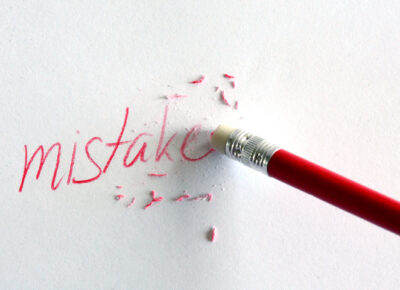There is a saying that mistakes should be treated as treasures not trash and a recent experience reminded me of this truism. While standing in a client’s warehouse an angry customer service rep approached with a customer complaint. The customer had twice received lowercase wooden letters instead of uppercase! The same error twice and what were we going to do with picking team she wanted to know! Clearly her immediate assumption was carelessness and had we accepted that assumption, we might have implemented some sort of error tracking system to gauge performance.
But how motivating is a system that routinely points out flaws and what is the sense of tracking symptoms? To understand the cause of the error we dug a little deeper. We went to the locations to recreate the problem. What did the picker see and how easy of a mistake would it have been? Is the location numbering system clear and are there product numbers on the boxes? It didn’t take long to figure out it was an easy mistake to make. The product and bin location numbers are only one digit off and the products were visually very similar. The conclusion was easy to make – we would see it happen again. Since we can’t control the product numbering, and changing the location numbers was unreasonable we moved one set of letters farther away. In addition, we pointed out the issue to the receiving team so they could systematically review other products and locate new products with that possibility in mind.
Admittedly this is a small win, but it is a true “win win”. The process gets better and morale goes up. Better process leads to happier customers and happier customers tend to buy more. Problem solving is also a time saver. Spending ten minutes today saves countless hours firefighting down the road and that is time that can be spent actually adding value.

